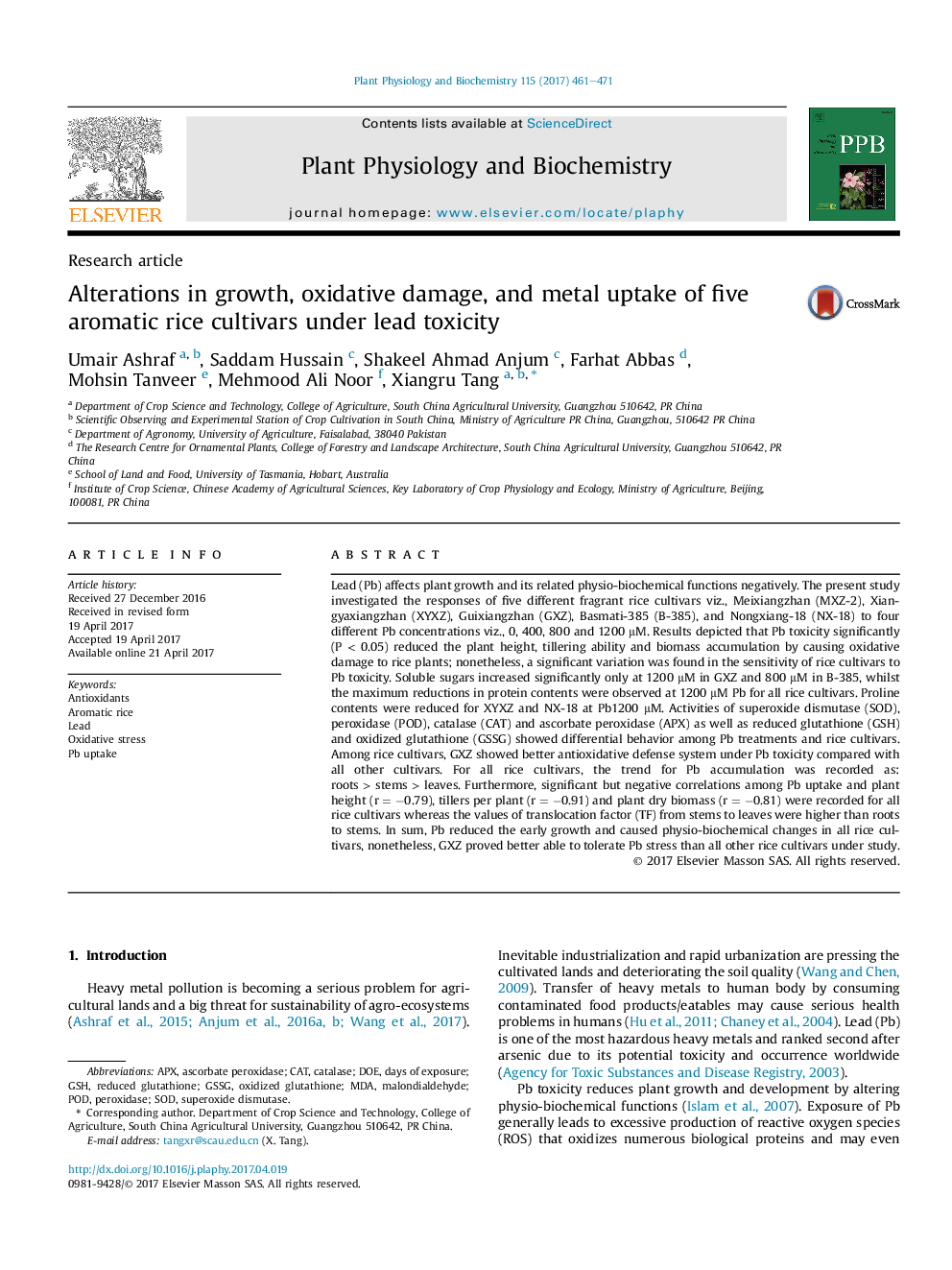| Article ID | Journal | Published Year | Pages | File Type |
|---|---|---|---|---|
| 5515410 | Plant Physiology and Biochemistry | 2017 | 11 Pages |
â¢Pb toxicity hampered growth, tillering ability and dry biomass of aromatic rice.â¢Pb stress induced oxidative damage in all aromatic rice cultivars.â¢Proline, protein and soluble sugars contents changed under Pb toxic conditions.â¢Pb toxicity regulated the antioxidant defense in all fragrant rice cultivars.â¢Guixiangzhan (GXZ) performed better than all other rice cultivars under Pb stress.
Lead (Pb) affects plant growth and its related physio-biochemical functions negatively. The present study investigated the responses of five different fragrant rice cultivars viz., Meixiangzhan (MXZ-2), Xiangyaxiangzhan (XYXZ), Guixiangzhan (GXZ), Basmati-385 (B-385), and Nongxiang-18 (NX-18) to four different Pb concentrations viz., 0, 400, 800 and 1200 μM. Results depicted that Pb toxicity significantly (P < 0.05) reduced the plant height, tillering ability and biomass accumulation by causing oxidative damage to rice plants; nonetheless, a significant variation was found in the sensitivity of rice cultivars to Pb toxicity. Soluble sugars increased significantly only at 1200 μM in GXZ and 800 μM in B-385, whilst the maximum reductions in protein contents were observed at 1200 μM Pb for all rice cultivars. Proline contents were reduced for XYXZ and NX-18 at Pb1200 μM. Activities of superoxide dismutase (SOD), peroxidase (POD), catalase (CAT) and ascorbate peroxidase (APX) as well as reduced glutathione (GSH) and oxidized glutathione (GSSG) showed differential behavior among Pb treatments and rice cultivars. Among rice cultivars, GXZ showed better antioxidative defense system under Pb toxicity compared with all other cultivars. For all rice cultivars, the trend for Pb accumulation was recorded as: roots > stems > leaves. Furthermore, significant but negative correlations among Pb uptake and plant height (r = â0.79), tillers per plant (r = â0.91) and plant dry biomass (r = â0.81) were recorded for all rice cultivars whereas the values of translocation factor (TF) from stems to leaves were higher than roots to stems. In sum, Pb reduced the early growth and caused physio-biochemical changes in all rice cultivars, nonetheless, GXZ proved better able to tolerate Pb stress than all other rice cultivars under study.
